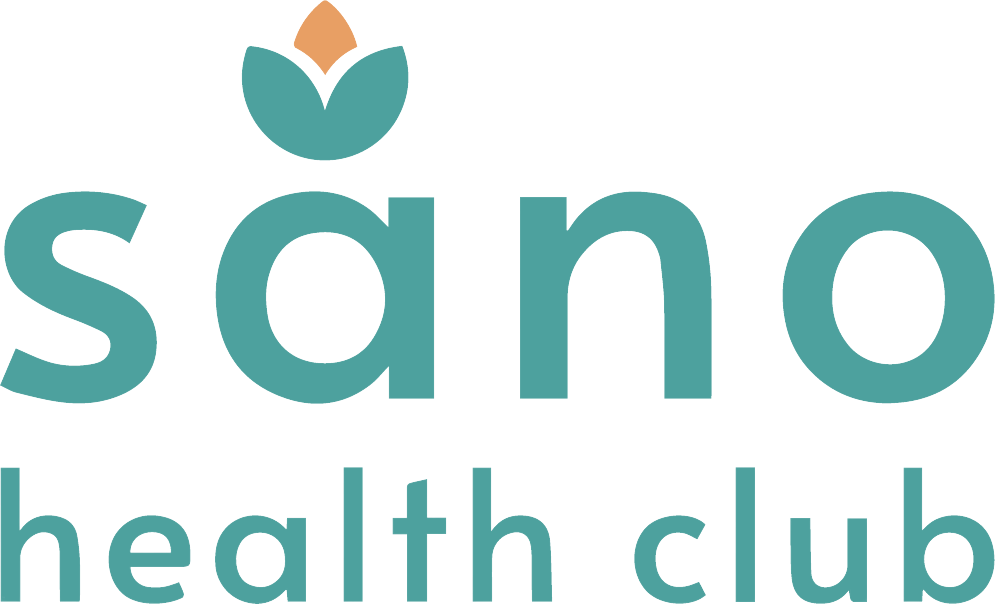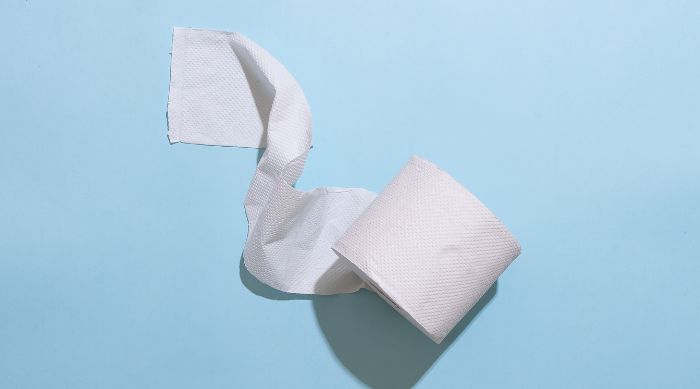A gut cleanse may sound like a great idea, especially if you feel detoxification of your digestive system could clear up your stomach issues.
But most gut cleansing products and “hacks” actually do very little to improve your gut health. That’s not to say all gut cleanse diets or products are a waste of time and money, but we recommend proceeding with caution.
Keep reading to find out how to safely cleanse your gut and renew your health.
What is a gut cleanse?
A gut cleanse is a way to flush out the colon, or large intestine, to remove built-up toxins and waste.
Poor diet, stress, and illness can wreak havoc on your gut. Bad bacteria can build up, creating gut dysbiosis. In some cases, inflammation can cause the lining of the gut to become more permeable, leading to a leaky gut.
Gentle gut cleansing offers an opportunity to reset your gut and renew your health.
Commercial colon cleansing products include laxatives, enzymes, and magnesium.
Enemas are also commonly used as a method of gut cleansing, which entails injecting fluid into the rectum to help stimulate a bowel movement.
Colonic irrigation is slightly more involved than an enema, though the principle is the same. A colonic requires more solution over a longer period of time. Colonics are typically administered by a medical professional.
While the above methods can be effective quick fixes, they’re often too harsh for the average person. Remember, your gut already works around-the-clock to eliminate waste and toxins from your body!
Natural colon cleanses are gentler on the digestive system and better for colon health.
What is a gut cleanse diet? Gut cleanse diets are often extreme dietary protocols that promise to quickly restore your colon health. While many of them claim to reset your gut in 7 days or less, it is healthier and more effective in the long run to make sustainable lifestyle changes to support your gut microbiome.
Benefits of Cleansing Your Colon
Most of the methods above are recommended prior to a colonoscopy — an imaging procedure that screens for colon cancer. The digestive tract must be cleaned out to an extreme degree so doctors can clearly see the colon.
But the benefits of a gut cleanse can aid with more than a medical procedure.
How do you know if you need a gut cleanse? You may need a gut cleanse if you frequently experience the following:
- Bloating
- Constipation
- Cramping
- Diarrhea
- Excess gas
- Irregular bowel movements
If you’re concerned about your gut health and want to find the root cause of your digestive problems, you can test your gut health at home or see a specialist.
What are the benefits of a gut cleanse? There are several health benefits to gentle gut cleansing, including:
- Stronger immune system
- Increased energy
- Mood regulation
- Weight loss
Stronger immune system
Because most of our immunity is housed in the gut microbiome, focusing on gut health could boost the immune system. Sustainably improving gut health can improve immunity and even prevent autoimmune disease.
Increased energy
Gut cleanses aren’t reserved for those with stomach troubles. If you’re plagued by fatigue, a gut cleanse could help increase energy levels. Much of our energy depends on digestive health, which gut cleanses are meant to improve.
Mood regulation
The gut-brain axis plays a significant role in mental health. In fact, mood swings can be a sign that your gut needs recalibrating. 95% of the body’s serotonin is manufactured in the gut and is responsible for mood regulation.
Weight loss
Lastly, resetting your colon health will help improve it digestive function. That means you’ll process foods at a healthier rate and bloating should go down. Continuing to cultivate gut health via hydration, diet, and overall healthy living will likely result in further weight loss.
3 Safe Ways to Cleanse Your Gut
1. Water
The National Academies of Sciences, Engineering, and Medicine advises a daily fluid intake of 3.7 liters (15.5 cups) for men and 2.7 liters (11.5 cups) for women. This may seem like a lot; however, it’s estimated that 75% of Americans are chronically dehydrated.
Increasing water consumption is a great way to start regulating your digestive tract.
2. Salt Water Flush
Mixing non-iodized salt and warm water will create a solution that has a laxative effect. According to one study, adding a yoga flow to the mix increases efficacy.
How do do it:
Add 2 teaspoons of sea salt or pink Himalayan salt to 4 cups of water and drink on an empty stomach.
An urge to use the restroom should strike about 30 minutes to an hour after consumption.
3. Apple Cider Vinegar & Honey
You’ve probably read about this one. While the body of formal research is lacking, anecdotal evidence is compelling. Both apple cider vinegar and raw honey are considered probiotics, which feed the beneficial bacteria for the gut. ACV fights harmful bacteria, which alone is a good reason to add it to your gut health regimen.
How to do it:
Mix 8 ounces of water, 2 tablespoons of apple cider vinegar, and 2 tablespoons of honey.
Drink just before bedtime. You’ll likely have a bowel movement first thing in the morning.
Safety Considerations
Before starting a gut cleanse, be sure to consult your healthcare provider. Though the occasional gentle gut cleanse may help cultivate a healthy gut, you should not perform them every day (or even on a weekly basis).
Seek medical advice to make sure you’re following the right protocol to safely improve your colon health.
If gut cleanses are conducted haphazardly or too frequently, they may cause:
- Nausea
- Abdominal pain
- Dehydration
- Electrolyte imbalance
- Rectal tears
In addition, if you suffer from heart disease, kidney disease, or other chronic conditions, a gut cleanse may not be advised. Check with your doctor to be certain.
Other Ways To Improve Your Gut Health
- Consume polyphenols: These antioxidants are found in berries, nuts, veggies, and coffee. Polyphenols are known for their positive effects on the gut microbiome.
- Eat lots of fiber: Fiber makes bowel movements easier. Fiber is found in fruits, vegetables, legumes, and whole grains. Particularly fibrous foods include cruciferous veggies (broccoli and brussel sprouts), lentils, and chia seeds.
- Consider dietary supplements: Prebiotics and probiotics help to ensure gut flora prevalence and diversity.
- Exercise: Including intentional movement and physical activity can improve gut flora diversity.
- Limit alcohol: Excessive alcohol consumption causes inflammation and can wreck your gut flora.
- Lower your stress levels: Chronic stress has been linked with numerous gastrointestinal conditions, including irritable bowel syndrome and chronic diarrhea. Lowering your stress levels can improve your gut health.
- Include fermented foods: Foods such as kimchi, kombucha, pickles, and sauerkraut are loaded with probiotics (good bacteria) that can help your gut bacteria flourish. Fermented foods are also anti-inflammatory and help keep blood sugar in check.
- Sleep more: Getting a good amount of sleep is vital for energy levels, mood, and even your gut. Lack of sleep can actually change the composition of the gut microbiome.
Boost Digestion and Restore Overall Health
Are you in California and want to learn more about gut cleanses, additional colon cleansers, or even detox diets?
Schedule a discovery call with a care team member to learn about Sano Health Club in Camarillo. Our team of functional doctors, nutrition specialists, and health coaches are here to help!
Sources
- Camilleri M. (2019). Leaky gut: mechanisms, measurement and clinical implications in humans. Gut, 68(8), 1516–1526.
- Paray, B. A., Albeshr, M. F., Jan, A. T., & Rather, I. A. (2020). Leaky Gut and Autoimmunity: An Intricate Balance in Individuals Health and the Diseased State. International journal of molecular sciences, 21(24), 9770.
- Boolani, A., Gallivan, K. M., Ondrak, K. S., Christopher, C. J., Castro, H. F., Campagna, S. R., Taylor, C. M., Luo, M., Dowd, S. E., Smith, M. L., & Byerley, L. O. (2022). Trait Energy and Fatigue May Be Connected to Gut Bacteria among Young Physically Active Adults: An Exploratory Study. Nutrients, 14(3), 466.
- Arya, V., Gupta, K. A., & Arya, S. V. (2010). Efficacy of bolus lukewarm saline and yoga postures as colonoscopy preparation: a pilot study. Journal of alternative and complementary medicine (New York, N.Y.), 16(12), 1269–1277.
- Schell, K. R., Fernandes, K. E., Shanahan, E., Wilson, I., Blair, S. E., Carter, D. A., & Cokcetin, N. N. (2022). The Potential of Honey as a Prebiotic Food to Re-engineer the Gut Microbiome Toward a Healthy State. Frontiers in nutrition, 9, 957932.
- Yagnik, D., Serafin, V., & J Shah, A. (2018). Antimicrobial activity of apple cider vinegar against Escherichia coli, Staphylococcus aureus and Candida albicans; downregulating cytokine and microbial protein expression. Scientific reports, 8(1), 1732.
- Cardona, F., Andrés-Lacueva, C., Tulipani, S., Tinahones, F. J., & Queipo-Ortuño, M. I. (2013). Benefits of polyphenols on gut microbiota and implications in human health. The Journal of nutritional biochemistry, 24(8), 1415-1422.
- Sánchez, B., Delgado, S., Blanco-Míguez, A., Lourenço, A., Gueimonde, M., & Margolles, A. (2017). Probiotics, gut microbiota, and their influence on host health and disease. Molecular nutrition & food research, 61(1), 10.1002/mnfr.201600240.
- Monda, V., Villano, I., Messina, A., Valenzano, A., Esposito, T., Moscatelli, F., … & Messina, G. (2017). Exercise modifies the gut microbiota with positive health effects. Oxidative medicine and cellular longevity, 2017.
- Bishehsari, F., Magno, E., Swanson, G., Desai, V., Voigt, R. M., Forsyth, C. B., & Keshavarzian, A. (2017). Alcohol and Gut-Derived Inflammation. Alcohol research : current reviews, 38(2), 163–171.
- Foster, J. A., Rinaman, L., & Cryan, J. F. (2017). Stress & the gut-brain axis: Regulation by the microbiome. Neurobiology of stress, 7, 124–136.
- Şanlier, N., Gökcen, B. B., & Sezgin, A. C. (2019). Health benefits of fermented foods. Critical reviews in food science and nutrition, 59(3), 506-527. Abstract only.
- Smith, R. P., Easson, C., Lyle, S. M., Kapoor, R., Donnelly, C. P., Davidson, E. J., … & Tartar, J. L. (2019). Gut microbiome diversity is associated with sleep physiology in humans. PLoS One, 14(10), e0222394.


